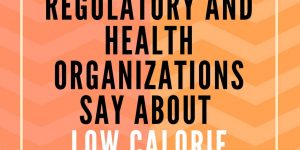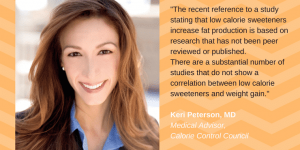Current body of evidence refutes new Study Claiming Consuming Sucralose-Sweetened Beverages with Carbohydrates Can Lead to Metabolic Impairment
A study published in the March 3, 2020 journal Cell Metabolism claiming that consuming a carbohydrate with sucralose-sweetened beverages causes metabolic impairment leading to insulin sensitivity has a number of limitations and is in contradiction to the current body of evidence indicating that sucralose does not negatively impact insulin sensitivity in healthy adults,1-4 according to … Continue reading










